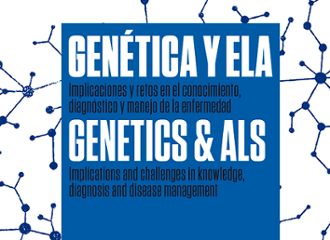Research projects
Start of main content
ldentifying novel determinants of clonal haematopoiesis progression: towards early detection of cancer risk
22st national competition for scientific and technical research
Personalized therapy, immunotherapy and cancer
Senior Researcher : Pedro Moral Quirós
Research Centre or Institution : Universidad de Oviedo.
Abstract
Myeloid neoplasms constitute a diverse group of haematologic diseases that aPect either haematopoietic stem cells, which are responsible for generating diPerent types of blood cells, or myeloid progenitors, which are precursors of monocytes, granulocytes, erythrocytes, and platelets. This group includes myeloproliferative neoplasms, myelodysplastic syndromes, and acute myeloid leukaemia. Their annual incidence is approximately 20 cases per 100,000 individuals, and their prevalence increases with age. Although advances in research have helped define the genetic basis of these diseases, myeloid neoplasms remain lethal for most patients, as treatments have changed little over the past 25–30 years, and ePective prevention or early diagnosis programmes are still lacking.
Most myeloid neoplasms arise from clonal haematopoiesis, a phenomenon characterised by the expansion of blood stem cells and their descendants due to genetic mutations. These mutations promote cell proliferation, leading to the emergence of mutated cell clones that outgrow normal cells. While this phenomenon is primarily caused by the same mutations that drive myeloid neoplasms, it can also be observed in healthy individuals without apparent haematologic abnormalities. However, its presence is associated with an increased risk of myeloid neoplasms, higher mortality, and other diseases, including certain solid tumours. This indicates that, in addition to genetic mutations, other factors also contribute to the malignant progression toward a myeloid neoplasm.
This project aims to understand how lifestyle and environmental factors influence the malignant transformation of clonal haematopoiesis into a myeloid neoplasm. Additionally, the role of inflammation and sex hormones in this progression will be investigated. Finally, an artificial intelligence-based early detection model will be developed to predict the risk of myeloid neoplasms and other types of cancer using genetic and clinical data. Early identification of at-risk individuals will enable the implementation of preventive measures or even the design of targeted therapies to halt the malignant progression of clonal haematopoiesis.
-
 Activities related
Activities related
-
 Projects related
Projects related
-
 News related
News related
-
 Publications related
Publications related
 Activities related
Activities related
-
26
Jun
2024
Conferencias La aventura de la ciencia Madrid, Miércoles 26 de junio de 2024, 19:00 horas
-
13
Feb
2025
17th edition. Cycle of conferences and debates in science Digital Twins: Technological Advances and Application Opportunities Madrid, Thursday, 13 February 2025, 17:30 hours
-
18
Feb
2025
Session New Therapies for the Inflammation Treatment Madrid, Feb 18th, 2025, Tuesday. 4PM
 Projects related
Projects related
- Development and Application of saRNAs for the Treatment of Rare Monogenic Diseases 2024 Senior Researcher : María Luisa Cayuela Fuentes
- CHANNELOSOME RESCUING PEPTIDES IN THE TREATMENT OF ARRHYTHMIAS IN INHERITABLE HEART DISEASES 2024 Senior Researcher : José Jalife Research Centre or Institution : Centro Nacional de Investigaciones Cardiovasculares (CNIC). Madrid
- Mechanisms for sustaining mitochondrial genome integrity and function during hematopoiesis. 2024 Senior Researcher : Ana Victoria Lechuga Vieco Research Centre or Institution : Fundació Clínic per a la Recerca Biomèdica. Hospital Clínic. Barcelona
 News related
News related
 Publications related
Publications related


End of main content



